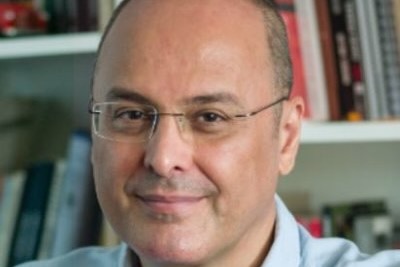Taner Kılıç was sentenced to 6 years and 3 months for “membership of a terrorist organization”, while Özlem Dalkıran, İdil Eser and Günal Kurşun were sentenced to 1 year and 13 months for “aiding a terrorist organization”. The remaining seven were acquitted.
This statement was originally published on expressioninterrupted.com on 3 July 2020.
The final hearing in the trial of 11 human rights defenders on terrorism-related charges was held on 3 July 2020 at the 35th High Criminal Court of Istanbul.
The prosecution that dragged on for three years began when Taner Kılıç, who was the chair of Amnesty Turkey, was arrested in his home in Izmir on 6 June 2017. A month later, 10 human rights defenders were detained in a hotel on the island of Büyükada in Istanbul while attending a workshop on digital security on 5 July 2017. Eight of the rights defenders, İdil Eser, Günal Kurşun, Özlem Dalkıran, Veli Acu, Ali Gharavi, Peter Steudtner, Nalan Erkem and İlknur Üstün, spent 99 days behind bars while Kılıç spent 432 days in pre-trial detention as part of the case.
This was the 13th hearing in the trial, where Amnesty Turkey’s Kılıç was accused of “membership of a terrorist organization” and the 10 other HRDs were charged with “aiding a terrorist organization without being its member.”
P24 monitored the hearing, in which Nejat Taştan and the defense lawyers were in attendance in the courtroom.
In their final opinion, the prosecution had requested for Taner Kılıç, Günal Kurşun, İdil Eser, Özlem Dalkıran, Nejat Taştan and Veli Acu to be convicted as charged. The court was expected to issue its verdict at the end of the previous hearing. However, after hearing the final defense statements of five defendants and some of the defense lawyers, the panel had ruled to adjourn the trial, citing lengthy defense statements.
At Friday’s hearing, Peter Steudtner’s lawyer Murat Deha Boduroğlu addressed the court first, reading out his client’s defense statement: “We would have rather spent all this effort we had to spend to defend ourselves on defending human rights. Our arrest and detainment was in violation of conventions of which Turkey is a signatory. Based on the existing evidence and laws, I request the acquittal of all of us. The court’s decision to acquit us will show that there is human rights in Turkey and will positively influence relations with Germany.”
Ali Gharavi’s lawyer Oğul Güner Olgun took the stand next to read his client’s defense statement: “You seek to acquit five of us and convict the rest. It isn’t possible for you to give us back three months of our lives we spent in detention and the following three years; it isn’t possible for you to undo the harm you inflicted on us, but you still have the opportunity to bring an end to injustice.”
Afterwards, Özlem Dalkıran’s lawyer Deniz Yazgan read her client’s defense statement: “In this final opinion the accusation is not supported by evidence and the smear campaigns led by certain news outlets have been taken into account. The goal is to intimidate and silence human rights organizations. The Büyükada Trial had a chilling effect on CSOs. This effect was further amplified by the Gezi Park Trial. Human rights defenders’ efforts are legitimate. During the three years of proceedings, no evidence has been presented to suggest that the [Büyükada] meeting was not peaceful. Let’s bring an end to this judicial disaster today. My friends and I will leave this trial knowing we are free and right.”
Aynur Tuncel Yazgan, another lawyer representing Dalkıran, also delivered her defense statement: “The claims against my client go against reason. Since the alleged act does not constitute a crime, I request my client’s acquittal.”
Following an hour-long recess, Nejat Taştan’s lawyer Ezgi Şahin Yalvarıcı presented her defense statement: “We saw that the prosecution disregarded even the evidence collected through an interim ruling by the court. Despite the fact that the evidence is materially non-existent, which was revealed through the investigations initiated by the court, it was disregarded in the final opinion. It is claimed that my client was in touch with a ByLock [a mobile messaging application which is illegal in Turkey] user, through a phone that was determined to not belong to him. To submit nonexistent evidence to the case file is an outright violation.”
Lastly, Nalan Erkem’s lawyer Ali Koç addressed the court, saying that the evidence presented had refuted the claims against his client. Koç requested Erkem’s acquittal.
Asked for his last words, Nejat Taştan said: “Even the money I sent to my lawyer was considered to be an element of crime. We have been struggling against this bizarre, state of emergency period indictment for the past three years. The prosecution copied-and-pasted the same allegations in the indictment as the final opinion. I have no requests.”
After another 1-hour recess, the court announced its verdict. Ruling by a majority, the court sentenced Taner Kılıç to 6 years and 3 months in prison for “membership of a terrorist organization.” The panel also sentenced Özlem Dalkıran, İdil Eser and Günal Kurşun to 1 year and 13 months in prison each for “aiding a terrorist organization” and acquitted Ali Gharavi, Nejat Taştan, Veli Acu, İlknur Üstün, Nalan Erkem, Peter Frank Steudtner and Muhammed Şeyhmus Özbekli.
In his dissenting opinion, one judge wrote that Taner Kılıç, Günal Kurşun, İdil Eser and Özlem Dalkıran should have been acquitted, considering the alleged crime was not proven.



